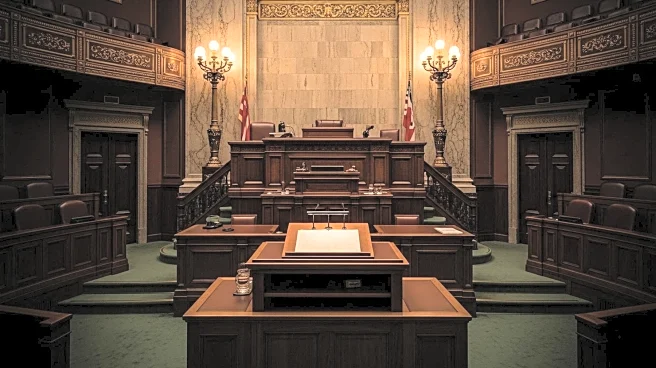What's Happening?
President Donald Trump visited Israel and was warmly received at the Knesset, where he was greeted with a standing ovation and a display of support from attendees wearing red hats. This visit follows a significant cease-fire agreement and the release of hostages, marking a pivotal moment in diplomatic relations. The event underscores the strong ties between the U.S. and Israel, with President Trump being recognized for his role in recent peace efforts.
Why It's Important?
The reception of President Trump at the Knesset highlights the ongoing diplomatic relationship between the United States and Israel. The cease-fire and release of hostages are critical developments in the region, potentially leading to more stable geopolitical dynamics. This event may influence U.S. foreign policy and its approach to Middle Eastern affairs, impacting international relations and security strategies. The support shown to President Trump could also reflect broader political sentiments and alliances within the region.
What's Next?
Following this visit, further diplomatic engagements between the U.S. and Israel are likely to continue, focusing on maintaining peace and stability in the region. Political leaders and stakeholders may respond to this development by reassessing their strategies and alliances. The U.S. may also explore additional avenues for collaboration with Israel, potentially influencing future policy decisions and international negotiations.
Beyond the Headlines
The enthusiastic reception of President Trump at the Knesset may have deeper implications for U.S. domestic politics, as it could bolster his standing among supporters who value strong international alliances. Additionally, this event may influence public perception of U.S. foreign policy effectiveness, particularly in conflict resolution and peace-building efforts.










